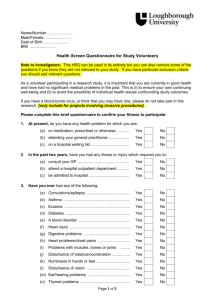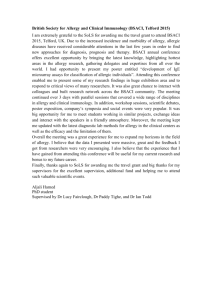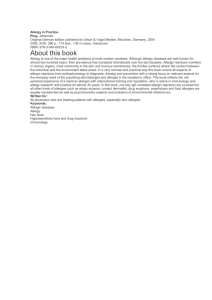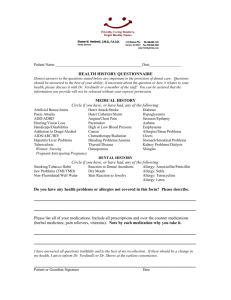Abstract for 30th May 12
advertisement
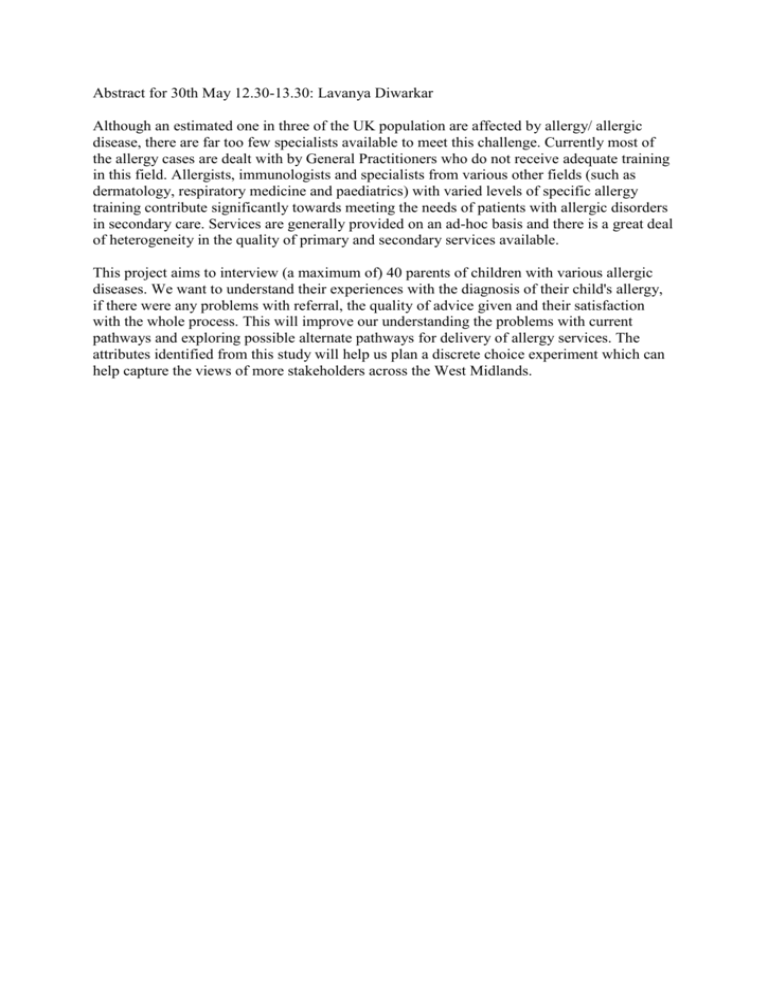
Abstract for 30th May 12.30-13.30: Lavanya Diwarkar Although an estimated one in three of the UK population are affected by allergy/ allergic disease, there are far too few specialists available to meet this challenge. Currently most of the allergy cases are dealt with by General Practitioners who do not receive adequate training in this field. Allergists, immunologists and specialists from various other fields (such as dermatology, respiratory medicine and paediatrics) with varied levels of specific allergy training contribute significantly towards meeting the needs of patients with allergic disorders in secondary care. Services are generally provided on an ad-hoc basis and there is a great deal of heterogeneity in the quality of primary and secondary services available. This project aims to interview (a maximum of) 40 parents of children with various allergic diseases. We want to understand their experiences with the diagnosis of their child's allergy, if there were any problems with referral, the quality of advice given and their satisfaction with the whole process. This will improve our understanding the problems with current pathways and exploring possible alternate pathways for delivery of allergy services. The attributes identified from this study will help us plan a discrete choice experiment which can help capture the views of more stakeholders across the West Midlands.



